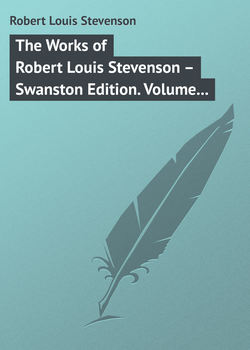Читать книгу The Works of Robert Louis Stevenson – Swanston Edition. Volume 24 - Robert Louis Stevenson - Страница 29
VII
THE RIVIERA AGAIN – MARSEILLES AND HYÈRES
To Jules Simoneau
Оглавление[Hyères or Royat, Summer 1883.]
MY DEAR FRIEND SIMONEAU, – It would be difficult to tell how glad I was to get your letter with your good news and kind remembrances, it did my heart good to the bottom. I shall never forget the good time we had together, the many long talks, the games of chess, the flute on an occasion, and the excellent food. Now I am in clover, only my health a mere ruined temple; the ivy grows along its shattered front, otherwise, I have no wish that is not fulfilled: a beautiful large garden, a fine view of plain, sea and mountain; a wife that suits me down to the ground, and a barrel of good Beaujolais. To this I must add that my books grow steadily more popular, and if I could only avoid illness I should be well to do for money, as it is, I keep pretty near the wind. Have I other means? I doubt it. I saw François here; and it was in some respects sad to see him, pining in the ungenial life and not, I think, very well pleased with his relatives. The young men, it is true, adored him, but his niece tried to pump me about what money I had, with an effrontery I was glad to disappoint. How he spoke of you I need not tell you. He is your true friend, dear Simoneau, and your ears should have tingled when we met, for we talked of little but yourself.
The papers you speak about are past dates but I will send you a paper from time to time, as soon as I am able to go out again. We were both well pleased to hear of your marriage, and both Mrs. Stevenson and myself beg to be remembered with the kindest wishes to Mrs. Simoneau. I am glad you have done this. All races are better away from their own country; but I think you French improve the most of all. At home, I like you well enough, but give me the Frenchman abroad! Had you stayed at home, you would probably have acted otherwise. Consult your consciousness, and you will think as I do. How about a law condemning the people of every country to be educated in another, to change sons in short? Should we not gain all around? Would not the Englishman unlearn hypocrisy? Would not the Frenchman learn to put some heart into his friendships? I name what strikes me as the two most obvious defects of the two nations. The French might also learn to be a little less rapacious to women and the English to be a little more honest.
Indeed their merits and defects make a balance.
There is my table, not at all the usual one, but yes, I think you will agree with it. And by travel, each race can cure much of its defects and acquire much of the others’ virtues. Let us say that you and I are complete! You are anyway: I would not change a hair of you. The Americans hold the English faults: dishonest and hypocrites, perhaps not so strongly but still to the exclusion of others. It is strange that such mean defects should be so hard to eradicate, after a century of separation, and so great an admixture of other blood.
Your stay in Mexico must have been interesting indeed: and it is natural you should be so keen against the Church on this side, we have a painful exhibition of the other side: the libre-penseur a mere priest without the sacraments, the narrowest tyranny of intolerance popular, and in fact a repetition in the XIXth century of theological ill-feeling minus the sermons. We have speeches instead. I met the other day one of the new lay schoolmasters of France; a pleasant cultivated man, and for some time listened to his ravings. “In short,” I said, “you are like Louis Quatorze, you wish to drive out of France all who do not agree with you.” I thought he would protest; not he! – “Oui, Monsieur,” was his answer. And that is the cause of liberty and free thought! But the race of man was born tyrannical; doubtless Adam beat Eve, and when all the rest are dead the last man will be found beating the last dog. In the land of Padre d. R. you see the old tyranny still active on its crutches; in this land, I begin to see the new, a fat fellow, out of leading-strings and already killing flies.
This letter drones along unprofitably enough. Let me put a period to my divagations. Write again soon, and let me hear good news of you, and I will try to be more quick of answer.
And with the best wishes to yourself and all your family, believe me, your sincere friend,
Robert Louis Stevenson.
